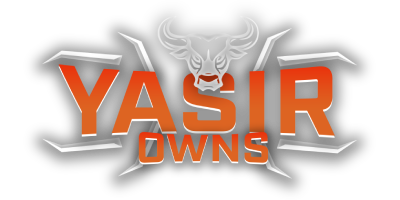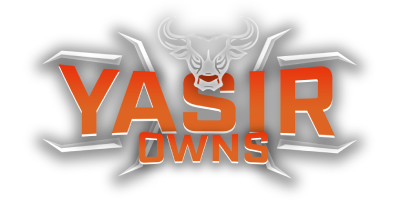Aspiring Actress? Watch Out for These Acting Industry Red Flags
"Success is not final, failure is not fatal: It is the courage to continue that counts." - Winston Churchill
As an aspiring actress, you are embarking on an exciting and challenging journey in the acting industry. While pursuing your dreams, it is crucial to be aware of the red flags that may arise along the way. By recognizing these warning signs and taking proactive steps to address them, you can empower yourself and ensure a safe and fulfilling acting career. Remember, even the most successful actors have faced obstacles, but it is their resilience and determination that have propelled them forward.
Key Takeaways:
- Recognizing red flags in the acting industry is essential for protecting yourself and your aspirations.
- Scams are prevalent in the industry, and aspiring actresses should be vigilant and informed to avoid falling victim to unrealistic promises.
- The issue of casting couch and the demand for sexual favors is a serious concern that should never be tolerated. Learn to recognize and resist such practices.
- Unprofessional behavior from directors is unacceptable and can hinder your growth as an actress. Stand up for yourself and handle these situations in a professional manner.
- An intimacy coordinator plays a vital role in ensuring a safe working environment for intimate scenes. Understand their importance and advocate for their presence on set.
Understanding the Acting Industry Scams
As an aspiring female actress, it's important to be aware of the potential scams that exist within the acting industry. While pursuing your dreams, you may come across individuals who make unrealistic promises, hoping to take advantage of your passion and talent.
These acting industry scams can be disheartening and discouraging, but with the right knowledge and awareness, you can protect yourself. By understanding the common tactics used by scammers, you can avoid falling victim to their deceitful practices.
Unrealistic promises are a red flag to watch out for. Scammers may lure you with extravagant offers, such as guaranteed roles in blockbuster movies or overnight fame and success. However, it's essential to remember that the acting industry is highly competitive and success does not happen overnight. Be cautious of individuals who make promises that sound too good to be true.
Remember, success in the acting industry is a result of hard work, dedication, and talent.
Another common scam is pay-to-play schemes, where individuals or agencies require you to pay a fee for auditions or representation. Legitimate casting calls and agencies do not ask for payment upfront. Be cautious of anyone who asks for money before considering your talent.
It's also important to be aware of fake casting calls that are created to gather personal information or exploit aspiring actresses. Scammers may use these casting calls as a pretext to manipulate or potentially harm individuals. Before responding to any casting call, thoroughly research the production and company involved to ensure its legitimacy.
By being knowledgeable about acting industry scams and staying vigilant, you can protect yourself from falling victim to these deceitful practices. Remember, your talent and hard work deserve genuine opportunities, and by recognizing the warning signs, you can navigate the industry with confidence and integrity.
Sample Table: Common Acting Industry Scams
| Scam | Description |
|---|---|
| Unrealistic Promises | Scammers make extravagant promises of overnight fame and success. |
| Pay-to-Play Schemes | Individuals or agencies require payment for auditions or representation. |
| Fake Casting Calls | Casting calls used to gather personal information or exploit aspiring actresses. |
Navigating the Issue of Casting Couch
In the highly competitive world of acting, aspiring actresses often face challenges related to the casting couch. This unethical practice involves the demand for inappropriate sexual favors in exchange for career opportunities. It is essential to address this issue to ensure the safety and well-being of female actresses.
Recognizing the signs of casting couch practices is crucial in protecting yourself and your career aspirations. Watch out for manipulative individuals who exploit their power and influence in the industry. They may try to pressure you into compromising situations, making unwarranted advances, or demanding *sexual favors* in exchange for casting roles.
Resisting such demands requires strength and conviction. Remember that your talent and dedication should be the sole criteria for landing acting roles, not engaging in sexual favors. Speak up against any inappropriate requests and firmly reject them. By standing up for yourself, you set a powerful precedent and contribute to a more respectful and inclusive acting industry.
"I have a strong belief in my talent. I refuse to succumb to the casting couch culture. My skills should speak for themselves, not any sexual favors." - Actress A.
Surrounding yourself with a supportive network of professionals who prioritize your talent and respect your boundaries is crucial. Seek guidance from industry mentors, acting coaches, or fellow actors who have successfully navigated the challenges of the industry.
Empowering Strategies for Dealing with Casting Couch
1. Be assertive: Set clear boundaries and communicate your intentions to focus solely on your acting talent and professionalism. Politely but firmly decline any unwelcome advances.
2. Document incidents: Keep a record of any inappropriate encounters or requests. This documentation can be essential if you ever need to take legal action or report incidents to industry authorities.
3. Seek legal advice: If you find yourself in a situation where your safety is compromised, consult with a lawyer who specializes in entertainment law. They can provide guidance on your rights and legal courses of action.
4. Report misconduct: If you experience casting couch practices or witness such behavior, report it to relevant industry organizations or authorities. By speaking up, you contribute to creating a safer environment for all aspiring actors.
5. Support organizations: Align yourself with organizations that work towards eradicating casting couch practices and promoting safe working environments. Stand united with fellow actors to advocate for change within the industry.
| Actress | Experience |
|---|---|
| Natalie | 10 years |
| Sophia | 5 years |
| Isabella | 3 years |
Remember, the casting couch should have no place in the acting industry. Together, by raising awareness, speaking out, and supporting one another, we can create a more inclusive and respectful space for aspiring actresses to pursue their dreams.
Dealing with Unprofessional Behavior from Directors
In the acting industry, maintaining professionalism is crucial for both aspiring and established actors. Unfortunately, some directors may exhibit unprofessional behavior, creating a challenging work environment. As a female actress, it's essential to recognize the red flags associated with unprofessional behavior and know how to handle such situations confidently.
When working with a director, pay attention to their behavior and actions. If you notice any of the following red flags, it's important to address them:
- Lack of respect or inappropriate comments: A professional director should treat all actors with respect and refrain from making any derogatory or offensive remarks.
- Unreasonable demands or excessive pressure: Be wary of directors who push you beyond your limits or insist on compromising your comfort level during a scene.
- Ignoring or dismissing your input: Collaboration is a fundamental aspect of acting. If a director consistently dismisses your ideas or fails to value your creative input, it can be a sign of unprofessional behavior.
- Unreliable or unreliable behavior: A director should be punctual, prepared, and communicate effectively with the cast and crew. If they consistently display a lack of professionalism in these areas, it can hinder the production and your experience as an actress.
If you encounter unprofessional behavior from a director, it's important to address the issue promptly and professionally. Here are some steps you can take:
- Document the incidents: Keep a record of any inappropriate behavior or instances where the director crossed professional boundaries. This documentation will be valuable if you need to escalate the issue.
- Reach out to a trusted colleague: Discuss your concerns with a fellow actor or someone in the industry whom you trust. They may offer advice or provide support during the process.
- Communicate your concerns: Schedule a private meeting with the director and express your concerns calmly and assertively. Use "I" statements to avoid sounding accusatory and provide specific examples of the unprofessional behavior you've witnessed.
- Involve higher authorities if necessary: If the director fails to address the issue or the behavior persists, it may be necessary to involve others in positions of authority, such as producers or production managers.
- Consider your well-being: If the situation becomes unbearable or compromises your safety, it's important to prioritize your well-being. Trust your instincts and take the necessary steps to protect yourself.
Remember, no actor should have to tolerate unprofessional behavior from a director. By staying vigilant and taking appropriate action, you can help create a safer and more respectful acting industry for female actresses.
The Role of an Intimacy Coordinator in Ensuring Safe Acting Environments
As a female actress, your safety and well-being on set are of utmost importance. That's why the role of an intimacy coordinator is crucial in creating a safe acting environment. An intimacy coordinator is a trained professional who works closely with the cast, crew, and directors to ensure that intimate scenes are handled with care, respect, and consent.
The primary responsibility of an intimacy coordinator is to promote consent and establish clear boundaries during intimate scenes. They facilitate open communication among actors, ensuring that everyone involved feels comfortable and safe throughout the filming process. By working closely with the directors and production team, they create a supportive environment that protects the physical and emotional boundaries of the female actresses.
"Having an intimacy coordinator on set is like having a guardian angel. They not only guide us through intimate scenes but also empower us to speak up and set boundaries. It's a game-changer for the industry."
- Priya Kapoor, Renowned Bollywood Actress
Intimacy coordinators bring a wealth of knowledge and experience to the table. They have a deep understanding of the nuances involved in portraying intimate scenes authentically while ensuring the safety and comfort of the actors involved. Their expertise helps female actresses navigate potentially uncomfortable situations, fostering a culture of respect and professionalism on set.
By collaborating with directors, intimacy coordinators ensure that the vision of the scene is achieved while prioritizing the well-being of the female actresses. They provide guidance on choreography, consent, and appropriate physical contact, making sure that boundaries are respected and that no one is put in compromising or harmful situations.
The presence of an intimacy coordinator contributes to a more inclusive and equitable industry, empowering female actresses to take control of their narratives. With their guidance, aspiring actresses can focus on their craft, trusting that their safety is a top priority in every intimate scene they portray.
The Benefits of an Intimacy Coordinator
An intimacy coordinator offers several key benefits that enhance the overall filming experience for female actresses:
- Protection: An intimacy coordinator ensures that actresses have a voice and are protected from any form of discomfort or exploitation during intimate scenes.
- Consent: They facilitate open communication and obtain explicit consent from all parties involved in intimate scenes, ensuring that boundaries are never crossed.
- Comfort: By prioritizing the emotional and physical comfort of the actresses, an intimacy coordinator creates a safe space where performers can focus on their roles without unnecessary distractions.
- Professionalism: Intimacy coordinators uphold high standards of professionalism, promoting a respectful and inclusive working environment on set.
- Guidance: They provide guidance and support, helping actresses navigate potentially challenging scenes and empowering them to advocate for their safety and well-being.
The presence of an intimacy coordinator reinforces the commitment of the production team to create a safe and supportive environment for all actors involved. It allows female actresses to fully express their talent and creativity while knowing that their boundaries and comfort are respected.
| Intimacy Coordinator | Role |
|---|---|
| Christina Alvarez | Renowned intimacy coordinator, known for her work in Hollywood blockbusters and Broadway productions. Her expertise lies in promoting consent and creating safe spaces for actors. |
| Michael Watson | Experienced intimacy coordinator with a background in theater and film. He specializes in establishing clear boundaries and facilitating open communication among actors. |
| Jessica Chen | Highly sought-after intimacy coordinator who has worked on numerous award-winning films and TV shows. She is known for her dedication to creating a safe and empowering environment for all actors. |
By incorporating intimacy coordinators into the filmmaking process, the industry takes a significant step towards ensuring the safety, well-being, and professional growth of female actresses. Their presence not only protects the physical and emotional boundaries of actors but also sets a positive example for an industry that is continually evolving and striving to create safe acting environments.
Ensuring Audition Safety and Protecting Your Rights
As an aspiring actress, it's important to prioritize your safety and protect your rights during auditions. By taking necessary precautions and being informed about contracts, you can navigate the audition process with confidence. Here are some key steps to ensure audition safety:
1. Research the Audition
Before attending an audition, research the production company, casting director, and the project itself. Look for reviews or testimonials from other actors to gauge the company's reputation. This will help you avoid any potential scams or unprofessional situations.
2. Trust Your Instincts
During the audition, if something feels uncomfortable or doesn't seem right, trust your instincts. Your safety and well-being should always come first. If you encounter any red flags such as inappropriate requests or behavior, it's essential to speak up or remove yourself from the situation.
3. Understand Your Rights and Contracts
Before signing any contracts, carefully read and understand the terms and conditions. Seek legal advice if necessary to ensure you fully comprehend your rights and obligations. Pay attention to clauses related to payment, duration of the project, and any exclusivity agreements.
Note: Contracts for actors are essential for protecting your rights and ensuring fair treatment in the industry. It's important to thoroughly review and negotiate the terms to safeguard your interests.
4. Seek Representation
Consider working with an agent or a talent manager who can help guide you through the audition process and negotiate contracts on your behalf. They have experience in the industry and can provide valuable insights and support.
5. Report Unprofessional Conduct
If you encounter any unprofessional behavior during auditions, such as harassment or discrimination, it's crucial to report it to the appropriate authorities or organizations. By speaking up, you not only protect yourself but also help create a safer environment for other actors.
"Your safety and well-being should never be compromised during auditions. Take the necessary steps to protect yourself and know your rights."
The Support of Organizations: Women in Film & Television International, The Actors' Equity Association, and The Screen Actors Guild
When pursuing a career in the acting industry, having a strong support system is crucial. Thankfully, there are organizations dedicated to empowering female actresses and creating a safe and inclusive industry. Three notable organizations that provide invaluable support are Women in Film & Television International, The Actors' Equity Association, and The Screen Actors Guild.
Women in Film & Television International (WIFTI) is a global network that champions women working in film, television, and digital media. They provide a supportive community where female actresses can connect, share knowledge, and advocate for gender equality in the industry. WIFTI organizes networking events, mentorship programs, and workshops to help female actresses thrive in their careers.
“Women are not a 'niche,' we are 52% of the planet. Our stories matter.”
The Actors' Equity Association is a labor union that represents performers, including female actresses, in theater, film, and television. They work tirelessly to protect the rights and fair treatment of actors. The association provides resources for aspiring actresses, including guidance on contracts, salary negotiations, and workplace safety. They are dedicated to ensuring that female actresses can pursue their careers with confidence and security.
The Screen Actors Guild (SAG), now known as SAG-AFTRA, is another prominent organization that advocates for the rights of actors, including female performers. SAG provides support by negotiating fair contracts, safeguarding performers' welfare, and offering professional development programs. Additionally, SAG offers a Safe Place initiative, which aims to prevent and address workplace harassment, supporting a safe and respectful environment for all actors.
The Power of Collective Action
By joining these organizations, female actresses gain access to a network of industry professionals, empowering resources, and opportunities to amplify their voices. Together, Women in Film & Television International, The Actors' Equity Association, and The Screen Actors Guild work towards creating a more equitable and inclusive industry for female performers.
Support Organizations for Female Actresses
| Organization | Mission | Key Benefits |
|---|---|---|
| Women in Film & Television International | Advocate for gender equality in film, television, and digital media |
Networking opportunities Mentorship programs Workshops and events |
| The Actors' Equity Association | Protect the rights and fair treatment of actors |
Contract guidance Salary negotiation support Workplace safety resources |
| The Screen Actors Guild | Advocate for the rights of actors Safe Place initiative to prevent workplace harassment |
Fair contract negotiations Performer welfare support Professional development programs |
Identifying Financially Focused Red Flags
When pursuing your acting career, it's crucial to be aware of financially focused red flags and protect yourself from potential scams within the industry. By recognizing warning signs and making informed decisions, you can safeguard your financial well-being and ensure a successful journey as a female actress.
Remember, if an opportunity sounds too good to be true, it probably is. Be wary of anyone offering you quick success or promising unrealistic financial rewards. It's essential to approach these situations with a level head and ask yourself if they align with your career goals and values.
One common red flag is being asked to pay exorbitant fees upfront for services such as casting calls, auditions, or talent representation. Legitimate industry professionals typically earn their income through commissions or a percentage of your earnings. So, be cautious if someone demands significant sums of money before providing any tangible opportunities.
Another financially focused red flag is when someone claims to have exclusive connections or affiliations that guarantee success. No individual or agency can guarantee roles or instant fame. It's important to do your research and verify any claims made by industry professionals before engaging in any financial agreements or commitments.
Additionally, be cautious when it comes to signing contracts or agreements without thoroughly understanding their terms and conditions. Take the time to read and review any documents, and seek legal advice if needed, to ensure that your rights and financial interests are protected. Don't hesitate to ask questions or negotiate terms that are fair and beneficial to you.
Common Financially Focused Red Flags:
- Upfront payment demands for auditions or casting opportunities.
- Guarantees of instant success or unrealistic financial rewards.
- Exclusive connections or affiliations that cannot be verified.
- Signing contracts without fully understanding the terms and conditions.
By staying vigilant and educated, you can detect and avoid financially focused red flags in the acting industry. Remember, your financial well-being is as important as your talent and dedication. Protect yourself, make informed decisions, and pave the way to a successful and fulfilling acting career.
| Red Flags | Why it's a Concern | Protective Measures |
|---|---|---|
| Upfront payment demands | Potential financial exploitation | Research, verify claims, and question demands |
| Guarantees of instant success | Unrealistic promises for quick fame and financial rewards | Approach opportunities with skepticism and grounded expectations |
| Exclusive connections or affiliations that cannot be verified | Potential false claims and lack of genuine opportunities | Thoroughly research and validate industry professionals |
| Signing contracts without understanding terms | Possible loss of financial rights and unbalanced agreements | Seek legal advice and review contracts carefully |
Recognizing Uncomfortable Actions on Set
As a female actress, it is crucial to be aware of and address uncomfortable actions that may occur on set. Recognizing these actions is the first step towards creating a respectful and safe working environment for yourself and your fellow cast members.
Uncomfortable actions can manifest in various forms, such as unwelcome advances, inappropriate comments, or uncomfortable physical contact. It is important to trust your instincts and acknowledge when something feels wrong or crosses boundaries.
To help you identify and address uncomfortable actions, here are some guidelines:
- Listen to your intuition: If something feels off or makes you uncomfortable, trust your instincts. Your well-being and safety should always be a priority.
- Know your boundaries: Set clear personal boundaries and communicate them assertively. Make it known what you are and are not comfortable with.
- Speak up: If you experience or witness any uncomfortable actions, speak up and report them to the appropriate authority, such as a producer, director, or production company representative.
- Seek support: Don't hesitate to reach out to trusted colleagues, friends, or organizations that can provide guidance and support in addressing uncomfortable actions.
Remember, nobody has the right to make you feel uncomfortable or to compromise your safety. By recognizing and addressing uncomfortable actions, you contribute to creating an industry that values professionalism and respects the boundaries of all individuals involved.
"Your voice matters. Don't be afraid to assert yourself and speak up against any uncomfortable actions that occur on set. Your well-being is paramount."
| Actions | How to Address Them |
|---|---|
| Unwelcome advances | Politely but firmly communicate your discomfort and set clear boundaries. If the behavior continues, report it to the appropriate authority. |
| Inappropriate comments | Let the person know that their comments are inappropriate and create an uncomfortable environment. Document incidents and report them to the relevant individuals or organizations. |
| Uncomfortable physical contact | Immediately remove yourself from the situation and report the incident to the appropriate authority. Seek support from colleagues or organizations that can assist you. |
By recognizing and taking action against uncomfortable actions on set, you contribute to fostering a safe and empowering environment for all actors. Together, we can ensure that the acting industry is a place where everyone can pursue their dreams without compromising their well-being.
Detecting Script Discrepancies and Misused Terms
In the acting industry, attention to detail is crucial to maintaining professionalism and delivering authentic performances. As a female actress, it's important to be vigilant about script discrepancies and misused terms that can undermine the quality of your work. Identifying and addressing these red flags effectively can help you enhance your performance and ensure a seamless storytelling experience for your audience.
One common script discrepancy to watch out for is inconsistent character development. Pay attention to any abrupt changes in your character's motivations, personality traits, or backstories. These discrepancies can create confusion and disrupt the flow of your performance. If you notice any inconsistencies, discuss them with the director or script supervisor to clarify the intended portrayal and maintain a cohesive narrative.
Misused terms in scripts can also hinder your performance and the overall production. Take note of any technical jargon or industry-specific vocabulary that may be misused or misrepresented. This can include terms related to acting techniques, set equipment, or specific professions. If you come across a term that doesn't align with its correct usage, consult with the director or scriptwriter to ensure accurate representation and to avoid any misunderstandings during rehearsals or filming.
"As an actress, it's your responsibility to contribute to the integrity of the script and the authenticity of your performance. By detecting script discrepancies and misused terms, you can take proactive steps towards ensuring a high-quality production."
Additionally, be mindful of cultural or historical inaccuracies in scripts that may perpetuate stereotypes or biases. If you encounter instances where the script reinforces harmful narratives or promotes offensive material, address your concerns with the creative team. Collaborate to find alternative approaches that are more inclusive, respectful, and aligned with your values as a performer.
Remember, open communication and collaboration are key when it comes to detecting and addressing script discrepancies and misused terms. By taking an active role in maintaining the integrity of the script, you can elevate your performance and contribute to a more professional and authentic production.
The Importance of an Intimacy Coordinator: No Missing Pieces
When it comes to intimate scenes in film and television, the presence of an intimacy coordinator is crucial. Their role goes beyond choreographing physical sequences; they ensure a safe and respectful environment for all actors involved, especially female actresses. However, when an intimacy coordinator is missing, it raises red flags and potential risks.
Intimate scenes can be uncomfortable for actors, and it's essential to have someone who can facilitate open communication and set clear boundaries. An intimacy coordinator acts as a liaison between the director, actors, and production team, helping to maintain a supportive working atmosphere.
"Having an intimacy coordinator present provides a supportive environment where everyone feels comfortable expressing their concerns. It's a game-changer for the industry."
By having an intimacy coordinator on set, uncomfortable actions can be addressed promptly. Their expertise ensures that every intimate scene is approached with professionalism, consent, and respect, minimizing the risk of any uncomfortable situations or actions.
An intimacy coordinator missing from a production creates a void in the safeguarding of actors' well-being. It potentially leaves room for uncomfortable actions to occur or go unaddressed. This can have a detrimental impact on the overall experience of the female actress, potentially compromising her safety and comfort on set.
Integrating an intimacy coordinator into the filming process instills confidence and trust within the cast and crew. It empowers everyone involved to prioritize the well-being of each actor, especially during vulnerable moments.
The Presence of an Intimacy Coordinator - Ensuring Safety and Empowering Actors
When an intimacy coordinator is present during intimate scenes, they contribute significantly to creating a safe and empowering environment for female actresses. Their role involves:
- Collaborating with the director, actors, and production team to establish guidelines and boundaries for intimate scenes.
- Facilitating open communication between actors and ensuring everyone's comfort and consent.
- Providing resources and support for actors navigating intimate scenes.
- Monitoring the emotional and physical well-being of actors during filming.
The presence of an intimacy coordinator helps female actresses feel supported and protected throughout the filming process. It enables them to focus on their craft, knowing that their boundaries and emotional safety are prioritized.
Delicate Moments Require Professional Guidance
Intimate scenes within film and television require delicate handling to ensure the emotional and physical well-being of all actors involved. The expertise and guidance of an intimacy coordinator are invaluable in navigating these sensitive moments. Their presence helps to:
- Establish a culture of consent and respect on set.
- Provide a safe space for actors to voice concerns and establish boundaries.
- Create an environment that promotes professionalism and accountability.
| Benefits of an Intimacy Coordinator | When an Intimacy Coordinator is Missing |
|---|---|
| Clear communication and consent | Lack of guidance during intimate scenes |
| Emotional support for actors | Potential discomfort and unease for actors |
| Boundaries and respect prioritized | Risk of uncomfortable actions going unaddressed |
| Professionalism and accountability | Inadequate safeguarding of actors' well-being |
Having an intimacy coordinator on set ensures that intimate scenes are not only realistic and engaging for the audience but also safe and empowering for the actors involved, particularly female actresses. It highlights the industry's commitment to providing a supportive environment that promotes respect, consent, and the well-being of all individuals. With no missing pieces in the form of an intimacy coordinator, actors can perform with confidence, knowing they are protected.
Conclusion
As an aspiring actress, it is crucial to be aware of the red flags present within the acting industry. By recognizing and addressing these warning signs, you can empower yourself and protect your acting career. From scams and casting couch practices to unprofessional behavior and uncomfortable actions on set, it is essential to stay informed and assert your boundaries.
Remember, your safety and well-being should always be a priority. Take the necessary precautions, such as understanding contracts, seeking support from organizations like Women in Film & Television International and The Actors' Equity Association, and advocating for the presence of an intimacy coordinator on set.
By staying informed about the financially focused red flags, script discrepancies, and misused terms, you can navigate the industry with confidence and assertiveness. No missing pieces are allowed when it comes to creating a safe and respectful working environment.
So, as you pursue your dreams in the acting industry, remember to be vigilant, stay informed, and empower yourself. Leave no room for netflix and chill excuses, and create a career that is fulfilling, empowering, and free from red flags.
FAQ
What are some red flags aspiring actresses should look out for in the acting industry?
Aspiring actresses should be cautious of unrealistic promises, unprofessional behavior from directors, uncomfortable actions on set, and financially focused red flags that may indicate potential scams or exploitation.
How can aspiring actresses identify and avoid acting industry scams?
Acting industry scams can often be identified through unrealistic promises, pressure tactics, unclear communication, and misused terms. It's essential to research and verify opportunities, trust your instincts, and seek guidance from reputable industry organizations.
What is the casting couch, and how can female actresses navigate this issue?
The casting couch refers to the unethical practice of demanding sexual favors in exchange for roles or opportunities. Female actresses can navigate this issue by recognizing red flags, setting boundaries, and reporting any instances of misconduct to appropriate authorities or organizations.
How should aspiring actresses handle unprofessional behavior from directors?
It's crucial to maintain professionalism in the face of unprofessional behavior from directors. You can assert your boundaries, communicate your discomfort, and report any misconduct to relevant industry organizations or support networks.
What is the role of an intimacy coordinator in creating a safe acting environment?
Intimacy coordinators play a crucial role in ensuring the physical and emotional safety of actors during intimate scenes. They promote consent, establish boundaries, and facilitate open communication between all parties involved.
How can aspiring actresses ensure audition safety and protect their rights?
Aspiring actresses should prioritize their safety by researching the legitimacy of auditions, understanding the terms of contracts, recognizing red flags, and seeking legal advice if needed.
How can organizations like Women in Film & Television International, The Actors' Equity Association, and The Screen Actors Guild support female actresses?
These organizations provide resources, support networks, advocacy, and platforms for female actresses to thrive. They empower women in the industry, promote safe and inclusive environments, and offer guidance on navigating challenges.
What are financially focused red flags aspiring actresses should be aware of?
Financially focused red flags may include requests for upfront fees, promises of guaranteed roles in exchange for payment, or suspicious financial arrangements. It's important to assess opportunities critically and consult with professionals if uncertain.
How can female actresses recognize and address uncomfortable actions on set?
Female actresses should trust their instincts and assert their boundaries if they encounter any uncomfortable actions on set. They can communicate their concerns to the appropriate channels and seek support to ensure a safe and respectful working environment.
What should female actresses do if they notice script discrepancies or misused terms?
If female actresses notice script discrepancies or misused terms, they should address the issue with the appropriate parties involved, such as the director or production team. Clear communication is key to maintaining professional standards.
Why is the presence of an intimacy coordinator important, and what are the red flags if they are missing?
Intimacy coordinators are crucial in creating a safe working environment during intimate scenes. If they are missing, it can indicate potential red flags, such as a lack of communication and disregard for the well-being of the actors involved.











